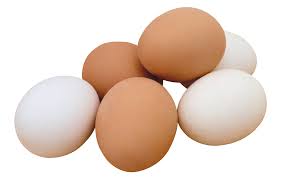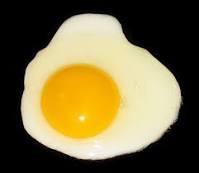By CEZ DONASCO

IN a time where scientific research findings contradict each other, people do not know what to believe anymore. Are eggs good for the health, bad, or maybe a little of both?
The reason why eggs have gained such dubious reputation is cholesterol. An egg yolk contains 214-220 mg of cholesterol. The American Heart Association recommends a limit of 300 mg per day. Because it’s the yolk that contains the cholesterol, a lot of people have been eating the egg whites alone – and made their lives miserable.
Most studies concluded that cholesterol from the diet has little, if any, effect on the level of cholesterol in the blood. In fact, the body produces 1000 mg of cholesterol per day. When a person consumes too much cholesterol, the body will slow down its production. And when less cholesterol is consumed, the body will produce more. The bigger factors here are genetics, lifestyle, stress, and individual differences.
Like the egg, cholesterol also suffers the same fate. It has been demonized for many decades to the detriment of the health of the multitude. Little do people know that cholesterol is one of the most important nutrients in the body. Without cholesterol, there is no life, for it is a part of every cell membrane and is required for the production of steroid hormones, Vitamin D, and bile acids responsible for fat digestion.
Cholesterol does not deserve the bad reputation and there is no reason to fear eggs.
Eating eggs does not cause heart diseases and stroke to healthy people. A study in Harvard of nearly 120,000 men and women, found no correlation between egg consumption – one per day – and heart disease, except in diabetics.
The Japanese consumes an average of 334 eggs per person per year as of 2008. Yet, they have lower levels of blood cholesterol and rates of cardiovascular mortality as compared to other developed countries.
On the other hand, Filipinos only consume 14 grams of egg per day, but diseases of the heart ranked number One in the Philippines, as the leading cause of mortality in 2009. This difference is due to the fact that the Japanese diet is low in total fat and saturated fat, while the Filipino diet is the opposite.
An inexpensive protein source, one egg can already provide 10 per cent of the daily protein requirement. A good source of antioxidants – lutein and zeaxanthine, it can help lower the risk of age-related eye disorders. Moreover, it contains choline, a B vitamin-like molecule responsible for cardiovascular and brain functions.

The consumers’ dereliction of the egg yolk should be stopped because compared to the egg white, it contains 100 percent of the fat-soluble vitamins(A,D,E, and K) and 90 percent of the calcium, iron, phosphorus, zinc, thiamin, folate, vitamin B6, and vitamin B12. Though egg white is higher in protein and riboflavin, it would still be best to eat the whole egg to be able to get the best of both worlds – unless you’re an athlete preparing for an event.
There also is no connection between the nutritive value of the egg and its shell color.
An egg is actually good for one’s health when eaten in moderation. Though studies that daily consumption (one per day) is not linked to heart disease and stroke, a recent report published online in the American Journal of Clinical Nutrition, concluded that it increases the chance of developing type-2 diabetes.
A person at risk; or currently diagnosed with diabetes, stroke, and heart disease should be more cautious in eating eggs. A diabetic person should limit egg yolk intake to 3-4 times per week. In the incidence of stroke, egg yolk consumption should be stopped. A healthy individual may eat more, but with other food sources available, variation is encouraged.
To optimize the benefits from eggs, go organic. Organic eggs have more omega-3 and nutrients. Poaching and boiling are also better methods of cooking, because they do not require the use of oil, and do less damage in the egg’s nutritive value.
The nature of science has always been dynamic. The facts of today may be myths of tomorrow and the myths of today may one day be facts. It’s wise to always read and EGG-xplore.
(The author, formerly nutritionist in Fitness First, is a freelance nutrition consultant.)
